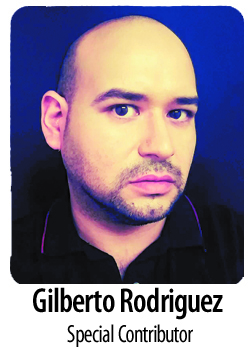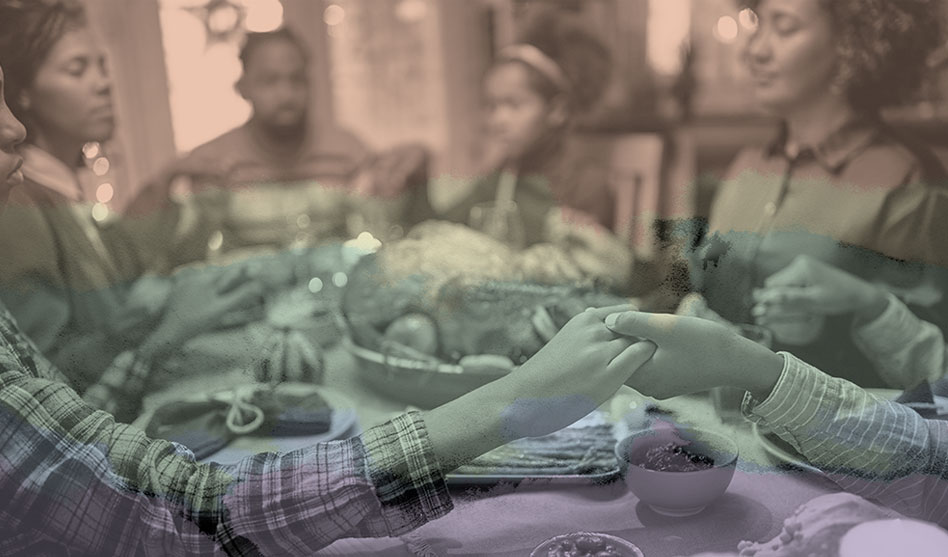Advice on getting through the holidays with family
 Thanksgiving is upon us again, and while most people are looking forward to a day spent with loved ones, others may be wrestling with complicated feelings around the holiday. Thanksgiving is already a very challenging holiday with its oppressive and problematic history, which is an extremely valid and separate conversation. Still, it is also an opportunity to share a meal with people you’re comfortable with, who make you feel loved and who make you feel welcome.
Thanksgiving is upon us again, and while most people are looking forward to a day spent with loved ones, others may be wrestling with complicated feelings around the holiday. Thanksgiving is already a very challenging holiday with its oppressive and problematic history, which is an extremely valid and separate conversation. Still, it is also an opportunity to share a meal with people you’re comfortable with, who make you feel loved and who make you feel welcome.
But not everyone in our community is welcome at home, and not everyone in our community has someone — or a group of someones — with whom to have Thanksgiving dinner.
Judith Martin once said, “If you can’t restrain yourself to treat others with respect, how are you going to get along with anyone?” That’s challenging advice to follow because of how disrespected many LGBTQ people feel and how fearful many LGBTQ people are of what might happen at a family gathering — especially one intended to symbolize gratitude, community, acceptance, love and togetherness.
Having to face family members who are openly hostile towards your gender identity or sexual orientation, having to go back into the closet around family, not feeling safe or supported enough to go home, being homeless due to family rejection or hostility — these are all possibilities many in our community face.
If any of that sounds familiar to you, know that you have full permission to take a pass on this year’s family Thanksgiving and instead create your own traditions with your chosen family. Or maybe Google your local community and outreach centers and see whether they need volunteers that day to help serve dinner for those in need or to answer a helpline or keep an office open.
“It’s just so much more relaxing … when you’re with people who you don’t have to explain things to, and there’s no hurdle of ‘I need to validate my life choices and my identity,’” Alexander Nicholas, a second-generation Filipino-American, explained to the Philadelphia Gay News in 2019.
Conventional holiday advice tells us to put aside our differences and remember that family triumphs over anything else. But relationships with parents, siblings and extended family can — and often do — become increasingly tumultuous for an LGBTQ person.
So, if you decide to attend a family gathering, be out and proud — especially if you’ll have an opportunity to be a role model for kids who might be present. You might be a lifeline to one of them.
A big part of holiday survival is to have a plan and to use this holiday as an opportunity to learn something about the other side. If the last decade has taught us anything, it’s how little we understand and respect one another.
Practice the art of listening, especially before you speak. Given the divisive times we live in, we need to listen harder to what other people are saying. Don’t immediately accuse relatives of being homophobic, transphobic or racist. While that’s never okay, and you don’t need to tolerate it, calling someone out on it won’t change their attitude. Anticipate challenges and come prepared with healthy responses that keep you above all else, safe.
Budget personal time to decompress. Brainstorm “safe” or neutral conversation topics ahead of time; don’t overextend yourself financially, and, if religion is an important part of the holidays for you, try finding a welcoming congregation.
Being polite has always been a go-to. Offer to set the table and clear the table. Eat the leftovers and ask genuine questions. Make good eye contact to show you’re unafraid, and take that second piece of pie when offered.
You are the expert on your own experience and needs; try not to worry about what other people expect of you. You are still you and should stay true to yourself.
It is also helpful to identify who your allies are. If you have them amongst people in your family who will be at the gathering, try to connect ahead of time. You can even ask for specific kinds of support. For example, if you know your uncle is going to mis-pronoun you but you have supportive cousins, ask your cousin what would feel appropriate in terms of correcting them.
For those who haven’t yet come out, Thanksgiving offers an opportunity to get all of your friends and family in one room to do so. In fact, many people refer to Thanksgiving as “the other National Coming Out Day.” Awkwardness is predictable, but expect the unexpected.
On the flipside, you don’t have to come out on Thanksgiving. Despite how we move and progress, each family remains a case to be studied, considered, appreciated and then conquered. Discussions about sexuality and identities remain difficult and, for many, impossible or impractical. Coming out was, is and will be hard, scary and sometimes even dangerous.
This is the time of year for reflection and gratitude. And even though it may feel impossible, acknowledge the things in your life you’re grateful for, or things you’ve accomplished that you’re proud of — big and small. Write them down. If you keep this list in your phone, you can pull it up whenever/wherever.
Try to have yourselves a Happy Thanksgiving, and remember, you are loved, honored and respected. And those are some incredible reasons to be thankful for.
Finally, remember that you are never alone. The trained Trevor Lifeline counselors are available 24/7/365 at (866) 488-7386 or via text 678-678.
















